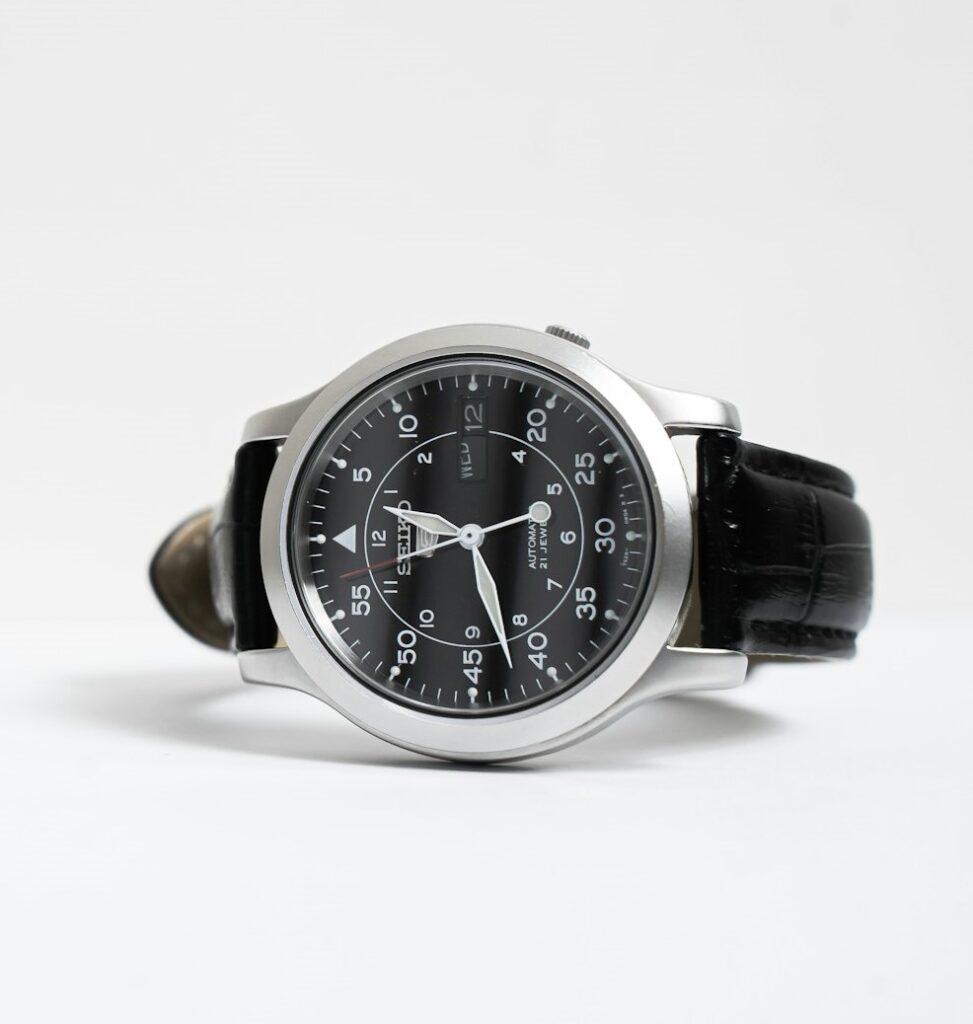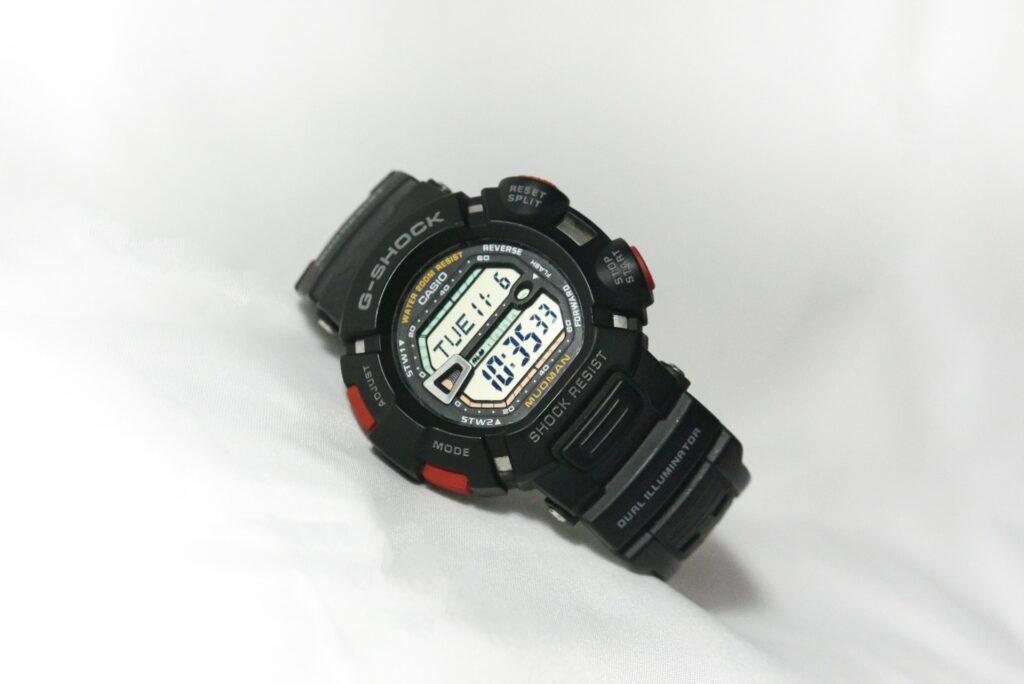Analog vs. Digital Watches: Which To Choose?
Have you ever found yourself standing in front of a watch display, mesmerized by the intricate movements of an elegant analog timepiece, only to be distracted by the sleek, high-tech appeal of a digital watch? The eternal debate between analog and digital watches has been raging for decades, leaving many watch enthusiasts and casual buyers alike wondering, “Which one should I choose?”
In this comprehensive guide, we’ll delve into the depths of this timeless conundrum, exploring the unique characteristics, advantages, and considerations of both analog and digital watches. By the end, you’ll be equipped with the knowledge to make an informed decision that aligns with your lifestyle, personal style, and preferences.
Contents
Understanding the Basics
Before we dive into the nitty-gritty, let’s establish a clear understanding of what we’re dealing with.
What Is an Analog Watch?
An analog watch is a timepiece that displays the time using hands that rotate around a dial, typically marking hours, minutes, and sometimes seconds.
What Is a Digital Watch?
Digital watches, on the other hand, display the time using numerical digits, often accompanied by additional features like alarms, stopwatches, and timers.
The origins of analog watches can be traced back centuries, with the earliest mechanical timepieces dating back to the 16th century. These intricate devices relied on a complex system of gears, springs, and escapements to measure the passage of time. Digital watches, however, are a relatively modern invention, made possible by the advent of quartz and electronic movements in the latter half of the 20th century.
Advantages of Analog Watches
Timeless Design and Classic Appeal
One of the most compelling aspects of analog watches is their timeless design and classic appeal. These timepieces have graced the wrists of royalty, celebrities, and watch enthusiasts for generations, exuding a sense of sophistication and elegance that transcends trends. From the sleek, minimalist faces of Bauhaus-inspired designs to the intricate guilloché dials of high-end luxury pieces, analog watches offer a diverse range of styles to suit any taste.

Perceived As Formal and Sophisticated
In many professional and social settings, analog watches are often perceived as more formal and sophisticated than their digital counterparts. The subtle elegance of a well-crafted analog timepiece can elevate any outfit, making it a popular choice for formal occasions, business meetings, and other settings where a touch of refinement is desired.
Easier To Read at a Glance
For some individuals, reading the time on an analog watch is more intuitive and natural than deciphering digital numerals. The sweeping motion of the hands and the visual representation of the time can make it easier to grasp the approximate hour and minute at a glance, without the need for precise digital readouts.
Mechanical Movements and Watch Enthusiasm
For many watch enthusiasts, the true allure of analog watches lies in their mechanical movements. Automatic or self-winding watches, powered by the wearer’s natural motion, offer a level of craftsmanship and engineering that is deeply appreciated by horological aficionados. The intricate inner workings and the gentle sweeping of the second hand can be mesmerizing to witness, making these timepieces as much works of art as functional instruments.
Potential for Heirloom Value and Collectibility
Well-made analog watches, particularly those from reputable luxury brands with a rich history, can hold significant heirloom value and collectibility. These timepieces can be passed down through generations, serving as tangible representations of family legacies and personal stories. Additionally, certain vintage and limited-edition analog watches can appreciate in value over time, making them coveted items for collectors.
Advantages of Digital Watches

Precise Timekeeping
One of the primary advantages of digital watches is their ability to keep extremely precise time. Quartz movements, which rely on the vibration of a quartz crystal to regulate timekeeping, offer an accuracy that far surpasses traditional mechanical movements. Some digital watches even incorporate atomic timekeeping technologies, ensuring they remain synchronized with atomic clocks for unparalleled precision.
Additional Features and Functionality
Digital watches often come equipped with a range of additional features that extend their functionality beyond simple timekeeping. Alarms, stopwatches, timers, and even calculators are common inclusions, making digital watches ideal for active lifestyles, sports activities, and various professional settings where these extra features can be invaluable.
Ideal for Active Lifestyles and Sports
The rugged construction and water resistance of many digital watches makes them well-suited for active pursuits and sports activities. These timepieces can withstand the rigors of outdoor adventures, intense workouts, and even water-based activities like swimming or diving (depending on their water resistance rating). The easy-to-read digital displays also make them practical for quick time checks during physical activities.
Affordability
While high-end analog watches can command premium prices, digital watches are generally more affordable, especially those from mainstream brands. This accessibility makes them an attractive option for those on a budget or for individuals who prefer to invest in other areas of their lifestyle rather than splurging on a timepiece.
Ease of Reading in Low-Light Conditions
With their illuminated displays and often backlit screens, digital watches offer superior readability in low-light conditions or at night. This can be particularly beneficial for professions that involve night shifts or outdoor activities that extend into the evening hours, ensuring the time is always easily visible.
Related Blog Post: 15 Best Digital Watches
Factors to Consider When Choosing
Lifestyle and Intended Use
One of the most crucial factors to consider when choosing between an analog or digital watch is your lifestyle and intended use. Are you seeking a timepiece for formal occasions and professional settings, or do you need a durable companion for outdoor adventures and sports? Evaluating how you plan to wear and use your watch can help guide your decision.
Personal Style and Fashion Preferences
Watches are not just functional accessories; they are also expressions of personal style and fashion preferences. Analog watches often align with more traditional and classic aesthetics, while digital watches can cater to those with a more modern taste. Consider which style resonates with your individual fashion sense and complements your overall look.
Budget and Affordability
Watches can range from affordable, entry-level models to extravagant, high-end pieces. Determine your budget and prioritize the features and quality that matter most to you. While analog watches can be more expensive, especially those with mechanical movements or from luxury brands, digital watches offer a wider range of affordable options.
Durability and Water Resistance Requirements
If you lead an active lifestyle or engage in water-based activities, durability, and water resistance should be key considerations. Many digital watches are designed to withstand rough conditions and are water-resistant to varying depths, making them suitable for sports and outdoor pursuits. However, some analog watches, particularly those with robust cases and high water resistance ratings, can also meet these demands.
Desired Features
Beyond timekeeping, consider what additional features you might find useful in a watch. Digital watches often come equipped with alarms, stopwatches, timers, and even fitness-tracking capabilities. Analog watches, on the other hand, may offer complications like chronographs, perpetual calendars, or multiple time zone displays, catering to specific needs or interests.
Hybrid Options
In recent years, the watch industry has recognized the demand for timepieces that combine the best of both worlds – the classic aesthetics of analog watches with the functionality of digital displays. Hybrid watches, also known as analog-digital watches, offer a unique fusion of these two worlds, allowing wearers to enjoy the traditional appeal of an analog dial while benefiting from digital features like date displays, alarms, and additional timekeeping functions.
Popular hybrid watch models, such as the Casio G-Shock line and various offerings from Seiko, Citizen, and Timex, have gained widespread popularity among those seeking versatile and well-rounded timepieces. These watches often feature analog hands for telling the time, accompanied by a digital display that provides access to various additional features and functions.
Final Verdict
In the end, the analog versus digital watch debate comes down to personal preference, lifestyle needs, and style sensibilities. If you value timeless elegance, mechanical artistry, and the potential for heirloom value, an analog watch might be the perfect choice. But if precision timekeeping, additional features, and rugged practicality for an active lifestyle are priorities, a digital timepiece could be the ideal companion.
Alternatively, you can embrace the best of both worlds with a hybrid analog-digital watch, blending classic aesthetics with modern functionality.
There’s no objectively “right” choice in this timeless debate. The perfect watch is the one that brings you joy and satisfaction every time you glance at your wrist.